For many years, antibiotics have been considered an indispensable "weapon" in treating infections in young children. However, recent studies suggest that the use of antibiotics in early life may be linked to the risk of overweight and obesity in children later in life. The question is: is this link really worrying, and how should parents and doctors look at it?
Warning signs from new research
Large-scale observational data from around the world show that children exposed to antibiotics during pregnancy, infancy, or the first year of life are at increased risk of being overweight as adults. This risk tends to be stronger with more frequent antibiotic use or early antibiotic exposure, particularly before 6 months of age.
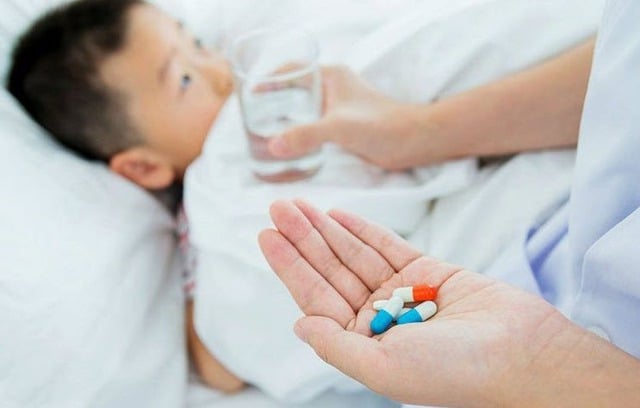
However, scientists admit that most of the current evidence is only at the "associative" level. That means it cannot be confirmed that antibiotics directly cause obesity, but only that these two phenomena appear in parallel with remarkable frequency. This is the reason why this connection has become a topic of debate in the medical community: are antibiotics the real cause, or just a factor accompanying many other characteristics of children?
Why can antibiotics affect weight?
The most widely discussed hypothesis concerns the gut microbiome. During the first years of life, the microbiome thrives and plays an important role in digestion, energy metabolism, immunity, and hormone regulation.
Antibiotics, especially broad-spectrum antibiotics, can significantly alter the microbiome structure. When the microbiome is disrupted during a child's "metabolic programming" phase, several mechanisms may occur:
- Increased absorption of energy from food, causing the body to store more energy than needed.
- Changes in inflammatory and immune signals, making the body susceptible to abnormal metabolism.
- Hormonal disturbances affect hunger and satiety, making children more likely to overeat.
- Reduced microbial diversity, causing an imbalance between beneficial and harmful bacteria.
Several animal studies have also shown that when the microbiome is affected by antibiotics, the animals gain weight faster even when their diet is unchanged. While these results cannot be compared to children, they support the idea that antibiotics may indirectly affect weight.
Children who use antibiotics early often:
- Born to a mother with a high BMI.
- Having had a caesarean section – which is associated with changes in gut microbiota. Early exposure to hospital environments or a history of severe infections.
- At risk of early weaning or differential feeding.
- Living in an environment with suboptimal eating and exercise habits.
- These factors can all independently increase the risk of obesity, so if a child gains weight later in life, it cannot be simply concluded that "antibiotics are the culprit".
In addition, doctors must also consider "treatment bias": children taking antibiotics for infections, and it is the underlying disease or post-treatment care conditions that may affect weight, not the drugs themselves.
Antibiotics should be used for the right disease, at the right dose, and should not be overused.
According to pediatricians, antibiotics remain an important and sometimes life-saving tool. The problem is not the use of antibiotics, but:
- Use the right medicine
- Right dose – right time
- Avoid unnecessary abuse
Many common illnesses in children such as colds, rhinopharyngitis, mild bronchitis... are caused by viruses, but many cases are still prescribed antibiotics or self-medicate.
Doctors advise parents to understand that not all illnesses require antibiotics. Even if a child has a fever, wheezing or a persistent cough, antibiotics are not necessarily the right choice.
In parallel, experts also mentioned the possibility of developing future measures to "restore the microbiome" after antibiotic treatment, such as using probiotics, prebiotics or nutritional interventions. However, these methods are still being evaluated and cannot be widely recommended.
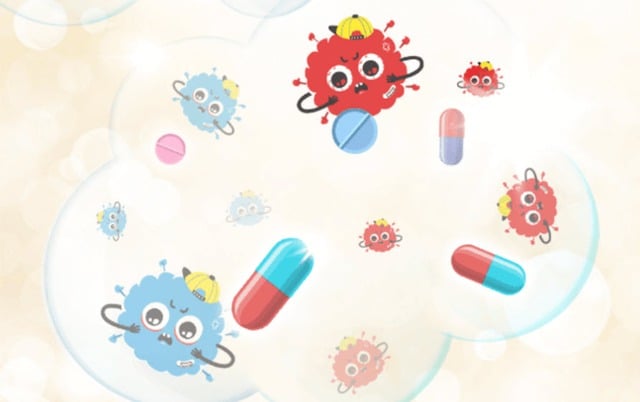
Illustration of changes in intestinal microbiota when children use antibiotics early.
What should parents do?
Some important principles to help minimize the risks from early antibiotic use:
Ask if your child really needs antibiotics. If it is a virus, your doctor may recommend monitoring and treating symptoms instead of using antibiotics.
Self-medication, taking the wrong dose or reusing old prescriptions not only increases the risk of drug resistance but also affects the child's microflora.
If prescribed, give your child the full course. Stopping the medication too early or skipping a few days may result in incomplete eradication of the bacteria and increase the risk of relapse.
Increase foods rich in soluble fiber, yogurt or fermented foods to help support the recovery of the microflora.
Parents should pay attention to weight gain after 2–3 months of multiple courses of antibiotics, especially in children under 1 year of age.
Do antibiotics really cause obesity?
The short answer is: not yet, but enough evidence to be cautious.
Antibiotics may contribute to changes in the microbiome during critical periods, which may influence long-term weight and metabolism. However, this is only one piece of the complex puzzle of childhood obesity — where genetics, nutrition, lifestyle, and social environment all play important roles.
Using antibiotics appropriately, with clear indications, is still the best way to protect children's health. In addition, building a suitable diet and exercise regimen from the first years of life is still the key factor to help children maintain a healthy weight.
Source: https://suckhoedoisong.vn/tre-dung-khang-sinh-som-co-de-tang-can-qua-muc-169251124100721153.htm


![[Photo] Prime Minister Pham Minh Chinh chairs the 15th meeting of the Central Emulation and Reward Council](/_next/image?url=https%3A%2F%2Fvphoto.vietnam.vn%2Fthumb%2F1200x675%2Fvietnam%2Fresource%2FIMAGE%2F2025%2F11%2F27%2F1764245150205_dsc-1922-jpg.webp&w=3840&q=75)

![[Photo] President Luong Cuong attends the 50th Anniversary of Laos National Day](/_next/image?url=https%3A%2F%2Fvphoto.vietnam.vn%2Fthumb%2F1200x675%2Fvietnam%2Fresource%2FIMAGE%2F2025%2F11%2F27%2F1764225638930_ndo_br_1-jpg.webp&w=3840&q=75)

























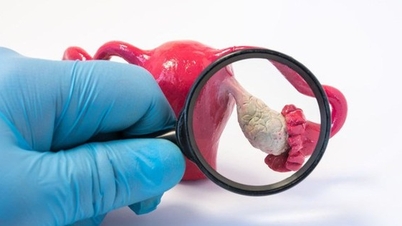
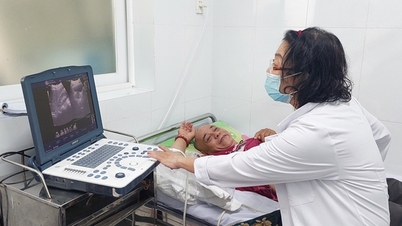

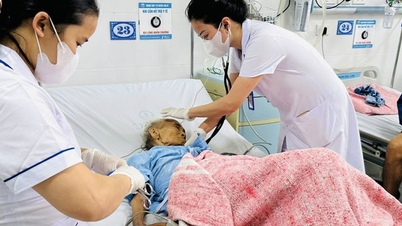

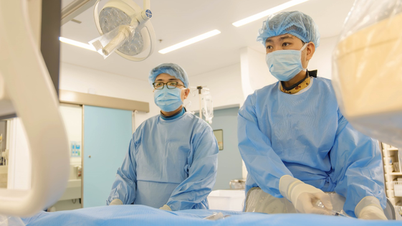









































































Comment (0)